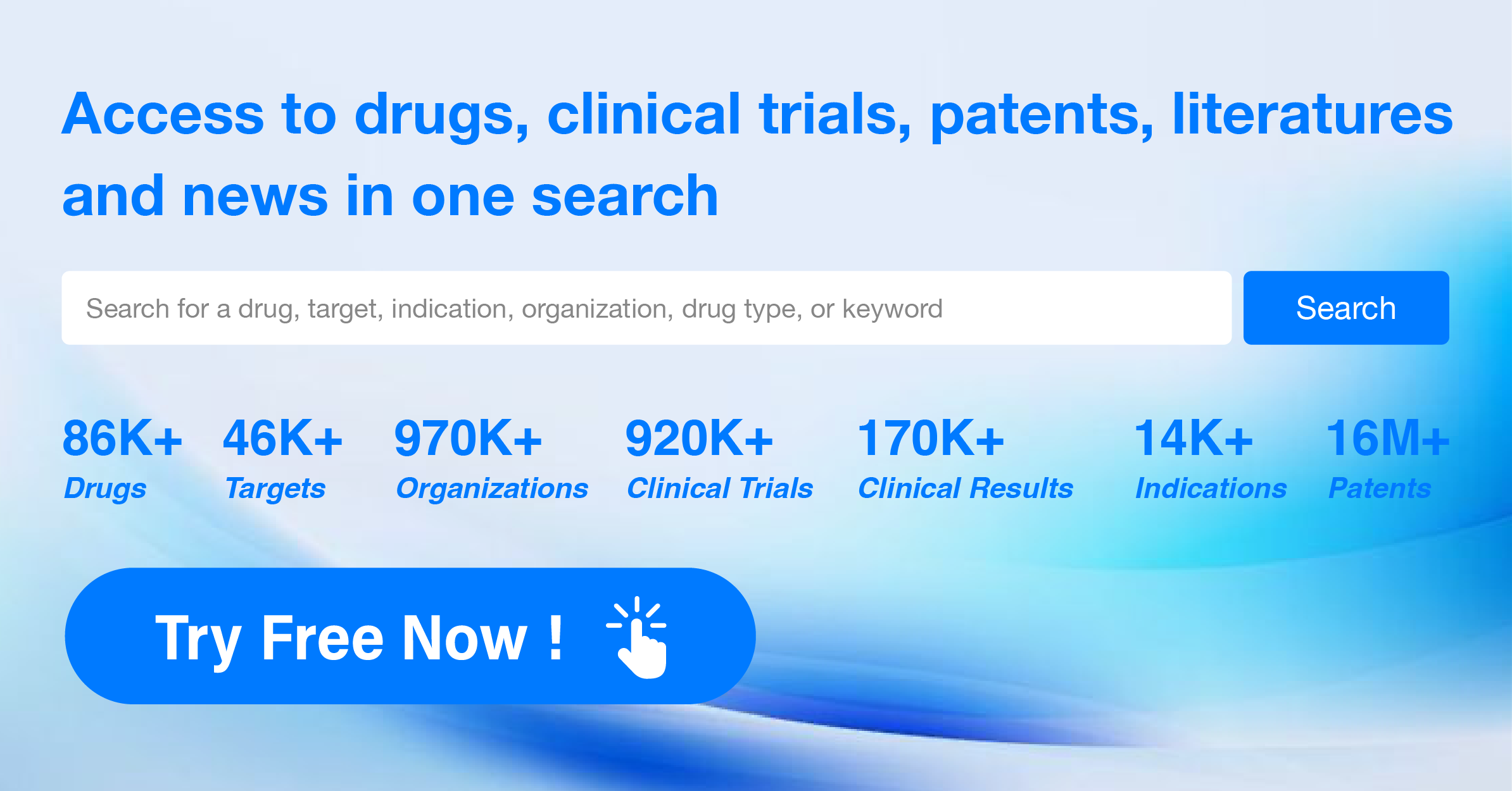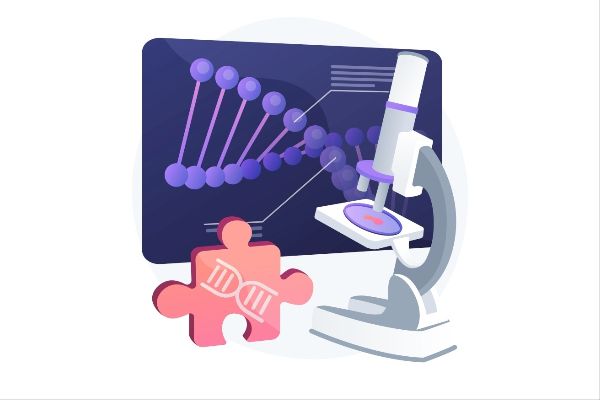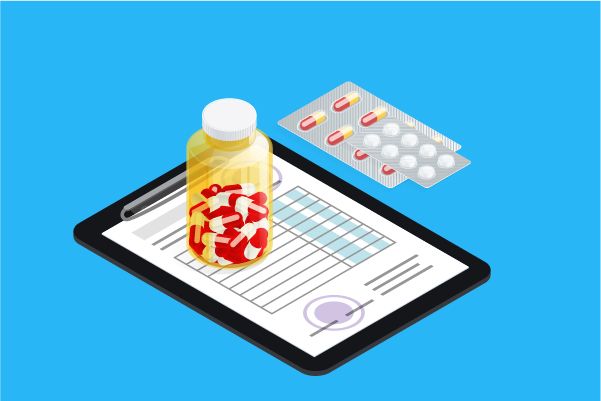Pharma Frontiers: Daily Digest of Global Pharmaceutical News - May 17
1.Bristol-Myers Squibb’s CAR-T Therapy Breyanzi Gains Another FDA Accelerated Approval
On May 16, the U.S. Food and Drug Administration (FDA) announced the accelerated approval of Bristol-Myers Squibb’s CAR-T therapy Breyanzi for an expanded indication. Breyanzi is now approved for the treatment of adult patients with relapsed or refractory follicular lymphoma (FL) who have received at least two prior systemic therapies. This comes after Breyanzi’s earlier accelerated approval in March for treating adult patients with relapsed or refractory chronic lymphocytic leukemia (R/R CLL) or small lymphocytic lymphoma (SLL). The latest approval is based on positive results from the Phase 2 clinical trial TRANSCEND-FL. In this single-arm, open-label trial, patients treated with Breyanzi achieved an overall response rate (ORR) of 95.7% (95% CI: 89.5%, 98.8%) at a median follow-up of 16.8 months, with the median duration of response not yet reached (95% CI: 18.04, NR).
Follicular lymphoma (FL) is the second most common slow-growing form of non-Hodgkin lymphoma (NHL), accounting for 20-30% of all NHL cases. Most FL patients are diagnosed over the age of 50. FL develops as white blood cells accumulate and form tumors in the body’s lymph nodes or organs. The disease is characterized by alternating periods of relapse and remission, making it more challenging to treat upon relapse or progression.
Breyanzi is an autologous CAR-T cell therapy targeting the CD19 antigen. It received FDA approval in February 2021 for the treatment of adult patients with relapsed or refractory large B-cell lymphoma (LBCL) after two or more lines of systemic therapy. A distinguishing feature of Breyanzi is its controlled ratio of CD8-positive to CD4-positive T cells within the CAR-T therapy, which helps better manage the therapy’s side effects. The incorporation of a 4-1BB signaling domain enhances the proliferation and persistence of the CAR-T cells.
2.Immutep's LAG-3 Combination Therapy Shows Positive Results in Phase 2/3 Trials
On May 16, Immutep presented positive efficacy and safety data from the Safety Lead-in portion of their Phase 2/3 AIPAC-003 clinical trial of the LAG-3 fusion protein therapy eftilagimod alpha (efti) at the 2024 European Society for Medical Oncology (ESMO) Breast Cancer Congress. The analysis indicated that metastatic breast cancer (MBC) patients treated with a combination of efti and paclitaxel achieved a 100% Disease Control Rate (DCR), with no observed dose-limiting toxicities. The trial aims to compare the safety and efficacy of combining efti with standard weekly paclitaxel chemotherapy in MBC patients who have progressed on endocrine therapy, including cyclin-dependent kinase 4/6 (CDK4/6) inhibitors. The primary objective of the Safety Lead-in portion is to determine whether a 90 mg dose of efti is more efficacious than a 30 mg dose. The randomized Phase 2 portion of the trial is ongoing and is expected to recruit up to 58 evaluable patients.
The current analysis revealed an Overall Response Rate (ORR) of 50% among six MBC patients, with a DCR of 100%, including one Complete Response (CR) and two Partial Responses (PR). Three patients had their best overall response rated as Stable Disease (SD) according to RECIST 1.1 criteria. Notably, the patient who achieved a confirmed CR was diagnosed with triple-negative breast cancer (TNBC) in 2019 and had undergone multiple lines of therapy, including CDK4/6 inhibitors. During treatment with the efti and paclitaxel combination, the patient initially achieved a PR, which progressed to CR, and has remained in CR under efti monotherapy after discontinuing paclitaxel. Furthermore, the 90 mg dose of efti combined with weekly paclitaxel demonstrated favorable safety and tolerability profiles.
3.InnoCare Announces Completion of Patient Enrollment in Phase II Clinical Trial of TYK2 Inhibitor for Psoriasis Treatment
On May 16, InnoCare Pharma Tech announced the completion of patient enrollment for the Phase II clinical trial of its internally developed tyrosine kinase 2 (TYK2) JH2 allosteric inhibitor, ICP-488, for the treatment of psoriasis. This is a multicenter, randomized, double-blind, placebo-controlled Phase II clinical trial aimed at evaluating the efficacy, safety, pharmacokinetics (PK), and pharmacodynamics (PD) of ICP-488 in Chinese adults with moderate to severe plaque psoriasis.
In recent years, there have been breakthroughs in treatments for psoriasis, with multiple emerging therapies showing progress, including TYK2 inhibitors. TYK2 is involved in the signaling of various cytokines and mediates downstream STAT phosphorylation, a pathway identified as a primary pathogenic mechanism for psoriasis and other autoimmune diseases. Research indicates that inhibiting TYK2 can regulate cytokines such as IL-23, IL-12, and Type I interferons without affecting other cytokines. Therefore, inhibiting TYK2 is expected to reduce the side effects associated with inhibiting other members of the JAK family, providing a safer and more effective treatment option for autoimmune diseases like psoriasis.
ICP-488 is an orally administered, highly selective TYK2 allosteric inhibitor. By specifically binding to the TYK2 JH2 domain, it blocks the signaling of inflammatory cytokines such as IL-23, IL-12, and Type I interferon, thereby inhibiting the pathological processes of autoimmune and inflammatory diseases. In the Phase I study for the treatment of psoriasis, ICP-488 demonstrated good efficacy and safety, and showed a safety advantage compared to other JAK inhibitors.
4.Unicar-Therapy Bio-medicine Technology's new CAR-T therapy proposed for Breakthrough Therapy Designation, with an ORR exceeding 90%!
On May 16, the official website of the Center for Drug Evaluation (CDE) under the China National Medical Products Administration (NMPA) announced that the application submitted by Unicar-Therapy Bio-medicine Technology for its CD19-targeted genetically engineered autologous T cell injection with IL-6 silencing function is proposed to be included for Breakthrough Therapy Designation. This therapy targets refractory/relapsed acute lymphoblastic leukemia (r/r ALL). Public information shows that this is a CD19-targeted CAR-T cell therapy with IL-6 knockdown function (ssCART-19) developed by Unicar-Therapy Bio-medicine Technology. Leukemia is one of the most common hematological malignancies, with acute lymphoblastic leukemia (ALL) accounting for approximately 15% of all leukemia cases, and B-cell acute lymphoblastic leukemia (B-ALL) making up around 75% of ALL cases. Adult B-ALL patients have a poorer overall survival rate compared to pediatric B-ALL patients, with a high relapse rate after initial treatment. Approximately 60% of patients eventually progress to refractory or relapsed B-cell acute lymphoblastic leukemia (r/r B-ALL). The prognosis for adult r/r B-ALL patients is extremely poor, posing a serious threat to life, and effective clinical treatment options are lacking.
According to information disclosed by Unicar-Therapy Bio-medicine Technology, ssCART-19 is their fourth-generation CAR-T product. It can simultaneously express CAR structure and IL-6 silencing elements, significantly reducing the release level of IL-6 factors. This, in turn, further reduces monocyte activation and the release of pro-inflammatory cytokines, thereby preventing severe cytokine release syndrome (CRS) and immune effector cell-associated neurotoxicity syndrome (ICANS) and improving the safety of CAR-T administration. The ssCART-19 cell injection had previously received approval from the CDE in 2020 to conduct registration clinical trials for the treatment of central nervous system leukemia and also obtained the Orphan Drug Designation from the U.S. FDA. The inclusion of this product in the proposed Breakthrough Therapy Designation by the CDE this time targets acute lymphoblastic leukemia (ALL).
5.Weight Loss Effect Surpasses GLP-1 Drugs! Dual Mechanism Weight Loss Therapy Published in "Nature"
On May 16, scientists from the Novo Nordisk Foundation Center for Basic Metabolic Research at the University of Copenhagen in Denmark published a critical preclinical study in the prestigious scientific journal "Nature." The research focused on an innovative dual-mechanism investigational weight loss therapy, GLP-1–MK-801, developed by the company, which showed superior weight loss effects compared to semaglutide. This therapy, with its innovative approach, holds promise for further breakthroughs in the current weight loss field.
The scientists developed a dual-mode compound, GLP-1–MK-801, by linking an NMDA receptor antagonist (MK-801) with a GLP-1 analog through a cleavable disulfide bond. This strategy aims to enhance the therapeutic potential of the NMDA receptor antagonist in GLP-1 receptor-rich brain regions involved in appetite regulation while simultaneously mitigating the side effects associated with non-specific binding of the NMDA receptor antagonist. GLP-1–MK-801 activates the MK-801 component only after binding to the GLP-1 receptor and undergoing cellular internalization, subsequently reducing neuronal excitability.
Experimental results indicated that simultaneously targeting GLP-1 and NMDA receptors produced a synergistic effect. Compared to using GLP-1 analogs alone or other GLP-1 receptor agonists, GLP-1–MK-801 exhibited a similar metabolic process in vivo but was more effective in reducing mouse body weight. During the 14-day treatment period, the body weight of the GLP-1–MK-801 group mice, adjusted for carrier weight, reduced by 23.2%, and their food intake decreased more significantly than that of mice treated with the carrier, GLP-1, or MK-801 alone. GLP-1–MK-801 reduced the mice's body fat mass by 45% while only leading to an 8% loss in lean body mass. In comparison, GLP-1 alone reduced body fat mass by 22% and lean body mass by 4%.
Moreover, the GLP-1–MK-801 group also exhibited a significant decrease in plasma cholesterol levels. Further development of GLP-1–MK-801 will require optimization of its administration regimen to achieve the best results in fat reduction, muscle mass maintenance, and drug cost-efficiency.
6.Vanda Pharmaceuticals Announces Successful Results from Second Phase III Study on New Anti-Motion Sickness Drug
On May 15th, Vanda Pharmaceuticals announced positive results from its second Phase III study (Motion Serifos) of the investigational drug Tradipitant for the treatment of motion sickness, particularly car sickness. Based on data from two Phase III studies, Vanda plans to submit a New Drug Application (NDA) for Tradipitant for the treatment of motion sickness in Q4 of this year. Tradipitant, originally developed by Eli Lilly, is a neurokinin-1 (NK1) receptor antagonist. In April 2012, Eli Lilly granted Vanda the global development rights for Tradipitant. Vanda is currently developing Tradipitant for various indications including atopic dermatitis pruritus, gastroparesis, novel coronavirus infection, motion sickness, alcohol addiction, social anxiety disorder, and functional dyspepsia.
Motion sickness is a condition characterized primarily by nausea and vomiting. It is one of the most common episodic disorders worldwide, with its prevalence sharply increasing along with the global population. The Motion Serifos study was a multicenter, randomized, double-blind, placebo-controlled Phase III trial conducted on boats in coastal waters of the United States. The primary endpoint was the effect of 170 mg Tradipitant on vomiting induced by motion sickness. A total of 316 participants with a history of motion sickness were enrolled and received either 170 mg Tradipitant, 85 mg Tradipitant, or a placebo during a boat trip. The results showed that both the 170 mg and 85 mg Tradipitant dose groups had significantly better outcomes in preventing vomiting compared to the placebo group. The proportions of patients who vomited were 10.4% and 18.3% in the 170 mg and 85 mg Tradipitant dose groups, respectively, whereas the placebo group had a vomiting rate of 37.7%.
7.Sanofi's Potential "First-in-Class" Innovative Drug Initiates Phase 3 Clinical Trials in China
Recently, the Chinese Clinical Trial Registry and Information Disclosure Platform announced that Sanofi has initiated an international multi-center (including China) Phase 3 clinical trial. This study targets adult subjects with non-relapsing secondary progressive multiple sclerosis (nrSPMS) and aims to enroll 858 participants globally. The objective is to evaluate the efficacy and safety of frexalimab in slowing their disability progression. In this study, the dosage regimen of frexalimab involves a loading dose injection on Day 1, followed by a single injection every four weeks thereafter.
Multiple sclerosis (MS) is a rare immune-mediated central nervous system disease, which has been listed in China's "First Batch of Rare Disease Catalog." MS occurs due to abnormal immune system attacks on the myelin sheath of nerve cells in the central nervous system, leading to inflammation and damage. This can result in a range of symptoms including muscle weakness, fatigue, and visual difficulties, and may eventually lead to disability. The average age of onset of MS is 30 years, with rare occurrences in patients under 10 years or over 50 years. The disease predominantly affects women more than men and is one of the leading causes of non-traumatic disability in young adults. Secondary progressive multiple sclerosis (SPMS) is one of the disease courses of MS.
According to information publicly disclosed by Sanofi, frexalimab is a potential "first-in-class" monoclonal antibody targeting CD40L. It functions by blocking the CD40/CD40L co-stimulatory pathway necessary for the activation and function of adaptive (T and B cells) and innate (macrophages and dendritic cells) immune cells. Current research indicates that the CD40/CD40L pathway plays a critical role in the onset and progression of multiple sclerosis.
8、19.9% Equity + Over $6 Billion! Hengrui Pharmaceuticals Licenses GLP-1 Product Portfolio to Hercules
On May 16, Hengrui Pharmaceuticals announced that it has granted a paid license for its proprietary GLP-1 product portfolio to Hercules CM Newco, Inc. Hercules will acquire the exclusive rights to develop, manufacture, and commercialize the GLP-1 product portfolio globally, excluding the Greater China region. As part of the external licensing transaction, Hengrui will obtain a 19.9% equity stake in Hercules and receive license fees for the GLP-1 product portfolio from Hercules.
Additionally, under the terms of the agreement, Hengrui will receive an upfront payment and near-term milestones totaling $110 million, which includes a $100 million upfront payment and a $10 million near-term milestone payment upon the completion of the technology transfer. Based on the clinical development progress of HRS-7535 and the first FDA approval for marketing, Hercules will pay Hengrui a cumulative amount of up to $200 million in clinical development and regulatory milestone payments. Furthermore, based on the actual annual net sales of the GLP-1 product portfolio within the licensed territory, Hercules will pay Hengrui a cumulative amount of up to $5.725 billion in sales milestone payments. Hercules will also pay Hengrui royalties at a low single-digit to low double-digit percentage of the actual annual net sales.
Hengrui and Hercules will establish a joint management committee to coordinate the global development and commercialization of the licensed products, with each company appointing three representatives to the committee.
Hercules is a company established in May 2024 in Delaware, USA, with a $400 million investment from Bain Capital Life Sciences Fund, Atlas Ventures, RTW Capital, and Lyra Capital. The company's business scope and primary operations are centered on biopharmaceutical development. The investors will be responsible for the setup and operation of Hercules in the United States.




